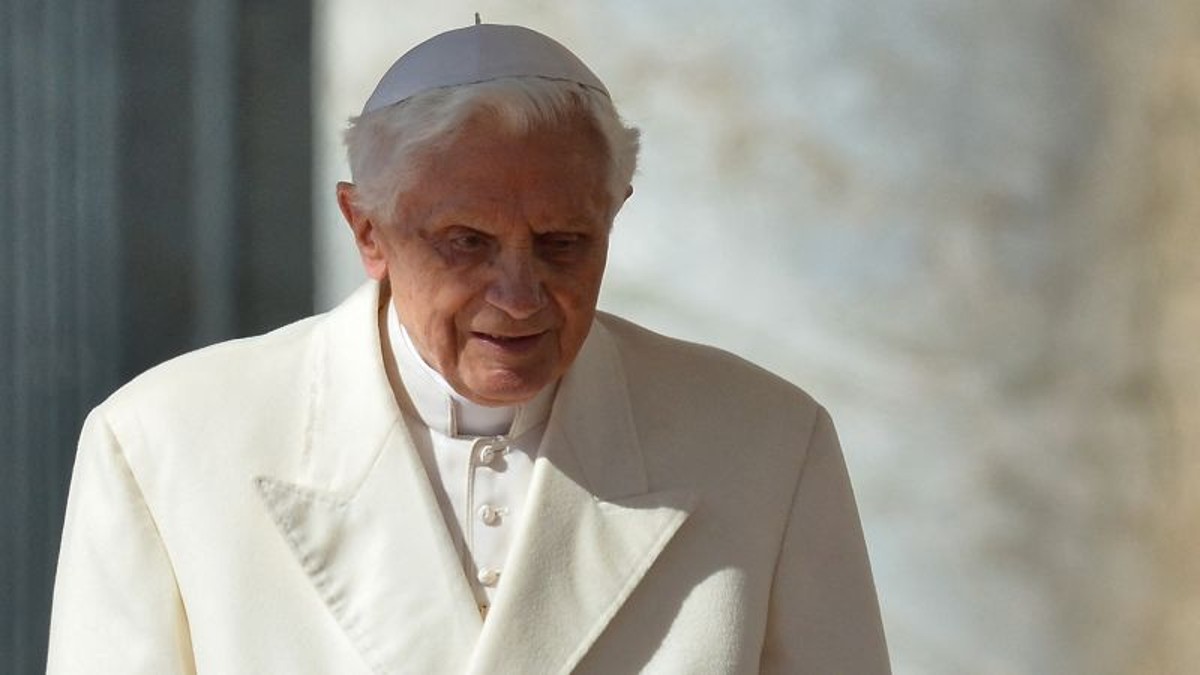Editor's Note:
Rafael Domingo Oslé is a Research Professor at the Center for Law and Religion at Emory University and Professor of Law at the University of Navarra.
The opinions expressed in this article correspond exclusively to its author.
You can find more opinion pieces at CNNe.com/opinion.
(CNN Spanish) --
Benedict XVI has died, that Bavarian pope, humble, simple and homely, with a Benedictine heart and Augustinian intellect, a lover of music and liturgy and of all that is beautiful and good in this world, including beer.
Based in the Vatican since 1981, as treasurer of the Catholic faith, Ratzinger was the closest collaborator and the perfect complement to John Paul II, whom he succeeded in 2005, more at the wish of the cardinal electors than of his own free will.
'God's Rottweiler': Benedict shaped Catholic doctrine but faced criticism for handling of sexual abuse crisis
His pontificate was full of lights, but there was also no lack of shadows.
Among the highlights is the implementation of the Second Vatican Council, which crossed his life like an arrow, his three excellent encyclicals, his fruitful teaching against moral relativism and defiant secularism, the development of ecumenism, the promotion of interreligious dialogue, the defense of human rights and his firm cry of zero tolerance in the face of the scandal of sexual abuse.
Benedict met with the victims, modified ecclesiastical legislation, demanded cooperation with civil authorities and fought against the cover-up culture that was rampant within the Church.
But sexual abuse and the Vatileaks scandal, which exposed corruption at the heart of the Vatican, cast a shadow over his pontificate.
Pope Benedict XVI learned of abuse by priests when he led the Archdiocese of Munich, investigators say
His resignation in 2013 makes Benedict a singular figure in the history of the Church.
If John Paul II ruled the Church sick for years, without getting off the cross, as was said then, Benedict, on the other hand, by renouncing his pontificate, supported the Church, that is, the cross, with the priestly silence of his life. contemplative.
Two different but sublime ways of serving and living together with Jesus Christ.
He rides so much, he rides so much.
"VatiLeaks" scandal does not include cardinals, says Vatican
I personally met Ratzinger at the University of Navarra in 1998, when he was still a cardinal.
He spent a few days on the Pamplona university campus, living among students, on the occasion of the honorary doctorate that this academic institution awarded him.
The depth of his thought and the simplicity of his life captivated my spirit as a young university professor.
It was then that I began to read, or rather to devour, Ratzinger's writings, which later became very useful for my work as a lawyer.
I saw in Ratzinger a kind of Francisco de Vitoria of the 21st century, who masterfully combined theory and practice.
I verified in his talks and seminars how Ratzinger grasped with great sagacity the unity of knowledge, the unity of truth and, deep down, the unity of reality.
For this reason, Benedict was able to transcend and integrate so many limiting dualisms and to tear down the false walls erected between faith and reason, tradition and renewal, Christianity and enlightenment, love and suffering, charisma and hierarchy. , the positive and the natural, work and contemplation, the human and the divine.
Yes, reality is simple, reality is one, because God is reality: “He is reality.
The reality that supports all reality ”, Ratzinger emphasized in one of his last conversations (Letzte Gespräche p. 269).
Ratzinger's entire magisterium, as theologian, bishop, cardinal and pope, has been directed towards the search for unity in truth, in keeping with his episcopal motto: servants of truth (cooperatores veritatis) (3 John 8).
For Benedict, this truth can only be found in Jesus Christ: "Jesus Christ is truly the way, the truth and the life, and the Church, with all her insufficiencies, is truly her body", he has left written in the spiritual testament of the.
Not surprisingly, the person of Jesus Christ occupied Benedict's theological research for decades, culminating in one of his masterpieces: Jesus of Nazareth.
He was moved to write it by an intense pastoral desire and the need to show the face of the son of God, inseparably uniting the Jesus of history with the Christ of faith.
The last section of the tenth chapter of the first volume is, in my opinion, the most successful.
There we see a Benedict XVI philosopher, exegete, pastor, intellectual and theologian at the same time, unraveling with great success the meaning of the name of Christ as it is: "I am".
Yes, Jesus Christ is the only person who can say always and at all times, in the present: "I am".
Jesus Christ is not a nostalgic I was nor a promising I will be, but a loving I am, who he loves to the point of madness of a God who cannot and does not want to stop loving.
This is the Jesus of Nazareth with whom Benedict XVI fell in love from his childhood and with whom today and now, always in the present, he will have melted into an eternal embrace.
Rest in love who spent his life sowing love.

